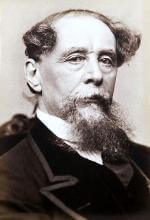En cours de chargement...
Barnaby Rudge - Poche
Edition en anglais
15,40 €
Neuf
Expédié sous 2 à 4 semaines
Livré chez vous entre le 8 octobre et le 22 octobre
En librairie
Résumé
Set against the backdrop of the Gordon Riots of 1780, Barnaby Rudge is a story of mystery and suspense which begins with an unsolved double murder and goes on ta involve conspiracy, blackmail, abduction and retribution. Through the course of the novel fathers and sons become opposed, apprentices plot against their masters and anti-Catholic mobs rampage through the streets. And, as London erupts into riot, Barnaby Rudge struggles to escape the curse of his own past. With its dramatic descriptions of public violence and private horror, its strange secrets and ghostly doublings, Barnaby Rudge is a powerful, disturbing blend of historical realism and Gothic melodrama. This edition is based on the first one-volume publication of Barnaby Rudge, reproducing all the original illustrations. Appendices include a map of London at the time of the Gordon Riots and the preface to the 1868 edition.
Caractéristiques
-
Date de parution01/01/2003
-
Editeur
-
ISBN0-14-043728-2
-
EAN9780140437287
-
FormatPoche
-
Nb. de pages744 pages
-
Poids0.545 Kg
-
Dimensions13,0 cm × 20,0 cm × 3,5 cm
Avis libraires et clients
Avis audio
Écoutez ce qu'en disent nos libraires !
À propos de l'auteur






